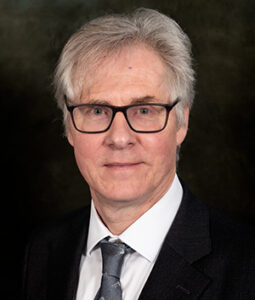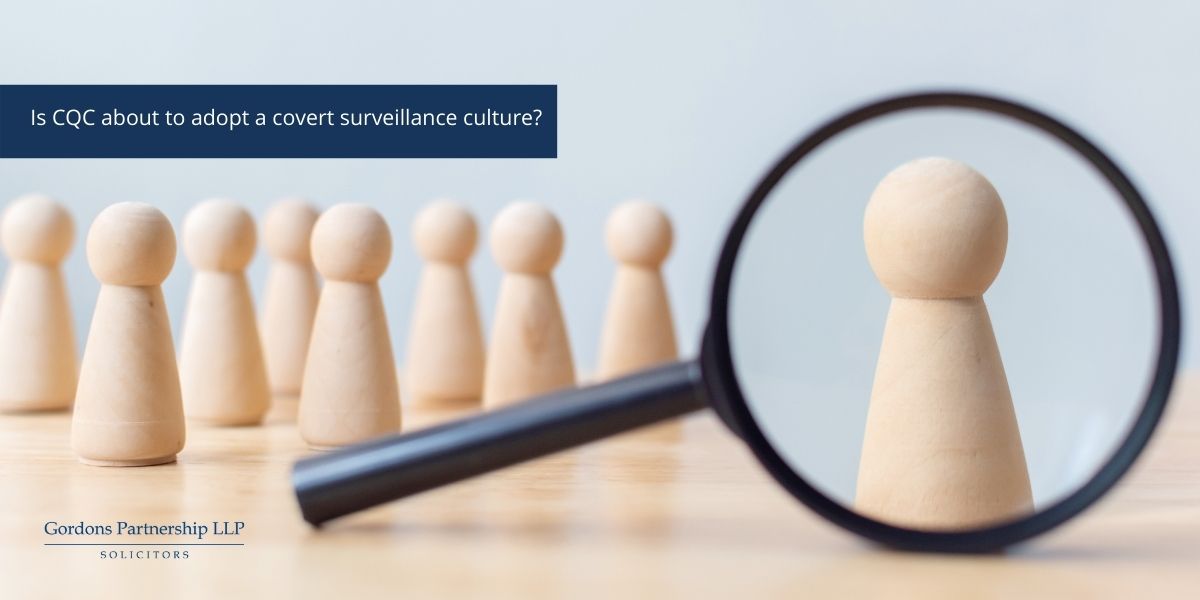Neil Grant recently had an article titled “Is CQC about to adopt a covert surveillance culture?” published in Caring Times.
Read the full article below or download the PDF.
As far as I am aware, the Care Quality Commission (CQC) does not currently carry out covert surveillance of care providers. On the CQC website, the Scheme of Delegation, dated 1 December 2018, refers to covert surveillance but says that decision-making in relation to authorising such surveillance is “not currently operational”.
A wide range of covert surveillance can be undertaken by public authorities in England without the need to get the approval of the courts. What is clear is CQC is reviewing its policy in relation to covert surveillance in light of the following two reports:
The relevant sections dealing with covert surveillance by CQC are as follows:
“Substantive reform of the Care Quality Commission’s approach and processes is essential. This should include unannounced inspections taking place at weekends and in the late evening, and the use, where appropriate, of covert surveillance methods to better inform inspection judgements.” [Summary, page 4]
“In her evidence Anne-Marie Trevelyan MP questioned why the CQC does not employ covert surveillance methods so that they can see what it truly going on in these places: “If a journalist going undercover as a staff nurse can identify this, why on earth did the CQC not do what I would call secret shopper activity as part of its inspection programme?” [‘Closed cultures ‘, paragraph 136, page 43]
“The use, where appropriate, of covert surveillance methods to better inform inspection judgements. In cases when tightly knit groups of staff seek to avoid scrutiny, whilst neglecting and abusing the most vulnerable people, inspectors should consider using the methods used successfully by journalists.” [Conclusion, page 49]
The relevant extracts dealing with covert surveillance by CQC are as follows:
“Where a service does appear to be failing, CQC needs to be able to gather more in depth data than it usually does in its inspections, perhaps through a ‘level 2’ inspection, where more data is gathered from staff (independently from the service provider), more time is spent observing on the ward, and priority is given to interviewing service users and carers. In addition, most interviewees thought that CCTV or other method of covert surveillance 54 needed to be considered as a tool in such circumstances, given that as all the inspectors and Advocates noted, once punitive and devious staff know that a visitor is from CQC they may change their behaviour, and this is less likely to be sustainable with covert surveillance in place.” [9.4 Safeguarding and whistleblowing, pages 53 and 54]
“… in a level 2 inspection, CQC should consider whether the importance of detecting abusive behaviour by staff, merits the use of CCTV or other covert surveillance, despite the ethical issues these methods raise.” [Recommendation 5, page 58]
“With respect to recommendation 5, CQC is planning a number of conferences and workshops to develop measures of staff culture and service atmosphere over the next few months. It will also be considering the research evidence in relation to CCTV and other methods of covert surveillance, together with the ethical issues these methods raise.” [12 Next steps, page 59]
CQC adopted all of Professor Murphy’s recommendations, including number 5 which recommended the use of covert surveillance where there were concerns about the culture of a service.
The current position
CQC highlights its work on covert surveillance in its Executive Team Report to the July 2020 Board Meeting in the following respects:
“We are reviewing our policy position across the organisation on covert and overt surveillance in June and July, from how we regulate providers who use surveillance, to how we as an organisation use surveillance to collect information, this work will be then informed by international best practice as recommended by the Glynis Murphy review. Once we have scoped what changes are possible within legislation, we will be co-producing our policy position with people with lived experience and families for their views on this later in the year to discuss how CQC might change its approach to this. This is part of our delivery of the Glynis Murphy review recommendations.” [5. Restraint, Segregation and Seclusion/Closed Cultures update, page 6]
Conclusion
I am not adopting a position for or against covert surveillance of registered services by CQC. Instead, I simply wish to highlight the fact that this is being considered by CQC. At this stage, it is not at all clear what covert surveillance might be under consideration. However, any form of covert surveillance, if adopted, would represent a major change in the way health and social regulation is conducted in England.
Significantly, the co-production of the policy will not involve care providers or their associations, if the statement in the Executive Team Report is to go by. The co-production will be with people with lived experience and families who I imagine will be supportive of covert surveillance.
It is perhaps surprising that the authorisation of covert surveillance is not something that CQC or its predecessors have ever deployed, at least as far as I know. After all, it is used by local authorities quite liberally across all manner of areas, including consumer scams and taxi cab regulation. If covert surveillance can be used to enforce the law by local authorities and many other public bodies, one can see an argument that CQC ought to be able to utilise it in support of its statutory functions. What seems clear is that CQC is taking this issue seriously in the context of its closed cultures programme following the Whorlton Hall scandal.
Given the complex legal and ethical issues at play, I hope CQC will engage with the sector about a possible change to its policy on the use of covert surveillance. However, I would not be at all surprised if CQC does not engage with providers on this issue as the more it discloses about its plans, the more the relationship with providers will be fundamentally altered. The era of the CQC secret shopper could be about to begin.
About the Author

Partner & Health and Social Care Solicitor
D.D: 01483 366069
Tel: 01483 451900
Email: neil@gordonsols.co.uk
